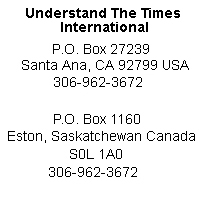Strange new off-white boxes popping up in downtown Seattle use wi-fi networks that can record the last 1,000 locations of a person using their cellphone’s MAC address, but the Department of Homeland Security – which funded the network to the tune of $2.7 million dollars – has refused to address the nightmare privacy implications of a system that could lead to the permanent tracking of an entire city’s population.
A report by The Stranger, a weekly Seattle newspaper, exposes how the boxes, which are attached to utility poles and include vertical antennae, can track cellphones even if they are not connected to the system’s wi-fi network.
Aruba – the company that provided the boxes to the Seattle Police Department – brags in its technical literature about how the boxes can keep track of “rogue” or “unassociated” devices, in other words your cellphone even if you have refused to let the system access your device’s wi-fi component. The user’s guide for one of Aruba’s recent software products states: “The wireless network has a wealth of information about unassociated and associated devices.” That software includes “a location engine that calculates associated and unassociated device location every 30 seconds by default… The last 1,000 historical locations are stored for each MAC address.”












